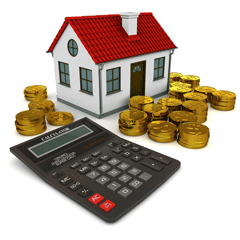Most of us think that buying Aliso Viejo Homes are far better than renting an apartment. You will not only own a home in a few years from now but will also see the fruits of your labor – as your greatest investment. Though paying a mortgage is more enticing than paying the monthly rental, it’s important that you know and have factored out all the costs that might incur before deciding to buy a home.
Many potential buyers forget to keep in mind the pre-buying costs including down payment, closing costs, moving costs, homeowners insurance and the possibility of depreciation, landscaping, appliances, home improvements and design accessories once they move in.
When you are the homeowner, the days of calling up the landlord or owner to fix some problems are gone. As the owner, you’ll be responsible for everything from the broken faucets to malfunctioning air conditioners or heater. If you buy a pre-owned home, you’ll encounter much repairs needed and eventually could cost you more like repairing the windows and roof, etc.
To crosscheck whether you can afford to buy a home, try the following:
- Check out the available houses for sale in your area. Determine the price of the home that interests you. Compare prices with other homes that offer better amenities. If you are with a realtor, he/ she may be able to provide you with this information.
- Run through different financing options. Compare different mortgages and their required down payments. See if it you have the required cash currently available. Down payments are typically being determined based on the percentage value of the property and the type of mortgage you have, usually it ranges from 3.5% to 30%. Additionally, do not forget to factor your private mortgage insurance – this is a policy that allows lenders to recover a portion of the losses in case the borrower fails to repay the loan.
- Get an estimated value of your closing costs, points, recording, taxes, inspection, title insurance, prepaid loan interest, cost of the policy, hazard insurance, real estate agent commissions, etc. These costs will go anywhere from 1% to 3% of the purchase price. Your lender will give you an estimate of all these once you apply for a mortgage.
- Make sure to add the closing costs and down payment together to determine the amount you needed right off the bat.
- Don’t forget to add to your budget your moving costs. Will you hire a moving company or you move your things yourself? Either way will cost you a lot especially if you have more stuff to move.
- Remember your property taxes. Most lenders will require an account that would allow payments for property taxes and mortgage together. Your tax rate will be around 1.2% of the actual purchase price of the home.
- Lastly, prepare a budget for repairs and home maintenance. This may include budget for home improvements, home design, landscaping, home appliances, etc.
Once you come up with the actual figures, now think whether you can still afford to buy a home. If you need further assistance with your budget and whether you will qualify for a home mortgage or not, talk to us at Integrated Realty Group.


